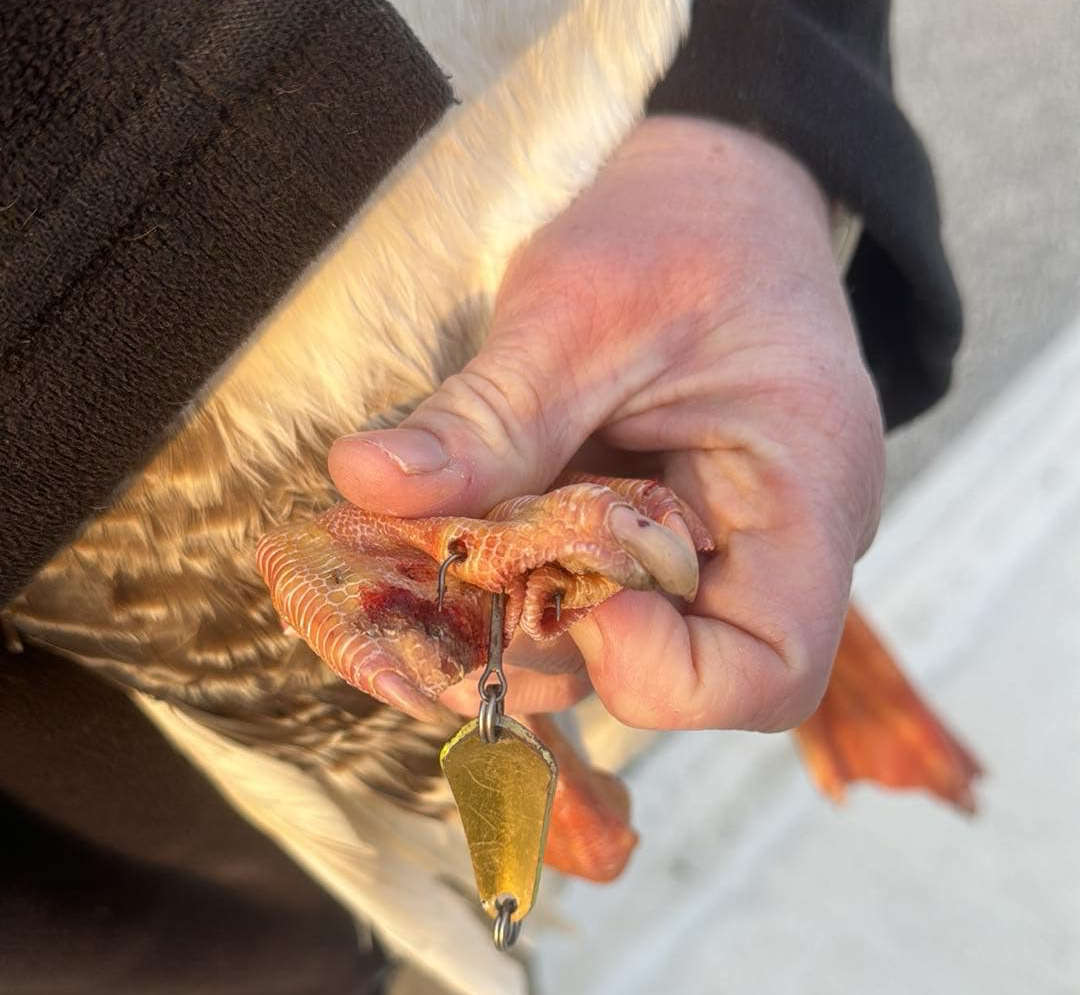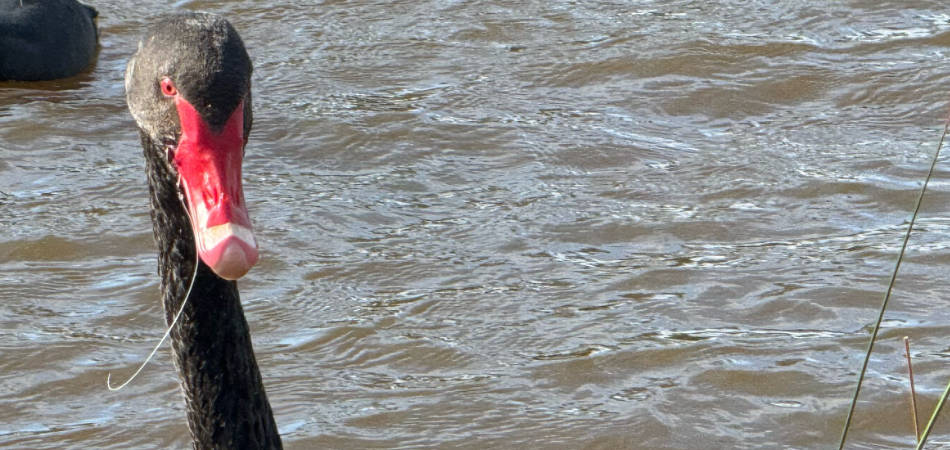A black swan frequently seen at Spavin Lake, that was treated for zinc poisoning in May, was helped again last month after a fishing hook was spotted in its beak.
In addition to removing a hook from the swan, volunteers from Wildlife Rescue & Rehab Statewide helped a goose that had a fishhook in one of its feet.
Jason Farrugia, president of the not-for-profit animal rescue service, says to help prevent more wildlife being caught in fishing line and discarded hooks, he wants to deter anglers by not having Spavin Lake restocked with fish.
“With the black swan, this is her fourth time being rescued this year,” says Mr Farrugia. “The first time was a fishing line stuck in its mouth, second time was a fishing hook in the swan’s stomach – Melbourne zoo had to remove it.
“The third time toxins (zinc) were found in her blood stream, and then this time with a fishing hook again. All this within six months.”
Mr Farrugia says he is worried more injuries will happen to the swan “before one massive thing kills her”.
“How much more can she take before she dies?” He says.

Mr Farrugia is also reminding residents that his organisation is inundated every spring with baby chicks and fledgling birds being ‘birdnapped’ by members of the community.
“We are urging cat owners to keep their cats indoors, or in a cat run during spring as too many wildlife succumb to injuries caused by cats, not only chicks,,” says Mr Farrugia.
“There’s also baby possums, joeys, and lizards, who also need rescuing from cat attacks.”
Wildlife Rescue & Rehab Statewide offers these tips:
- Mums and dads leave their chicks unattended to find food, but will always return
- When the bird is old enough it will come to the ground where the parents will teach it to fly and reach the life skills it requires. The bird can be on the ground for up to 14 days before it will be able to fly
- Please keep your cats inside to avoid them harm
- If you find a young baby bird out of the nest you can make a make-shift nest to put it back in tree as high as you can. Parents will take them back
- If you find a bird in your yard and removing your dogs isn’t an option. Try to put the baby in your front yard – or in neighbour’s back yard if they don’t have dogs – and can monitor if parents find them
- Always call if the bird is sick/injured – phone 0434714104
- We are always here to help, but we always try to keep the baby birds with their parents as this is the best option for them



